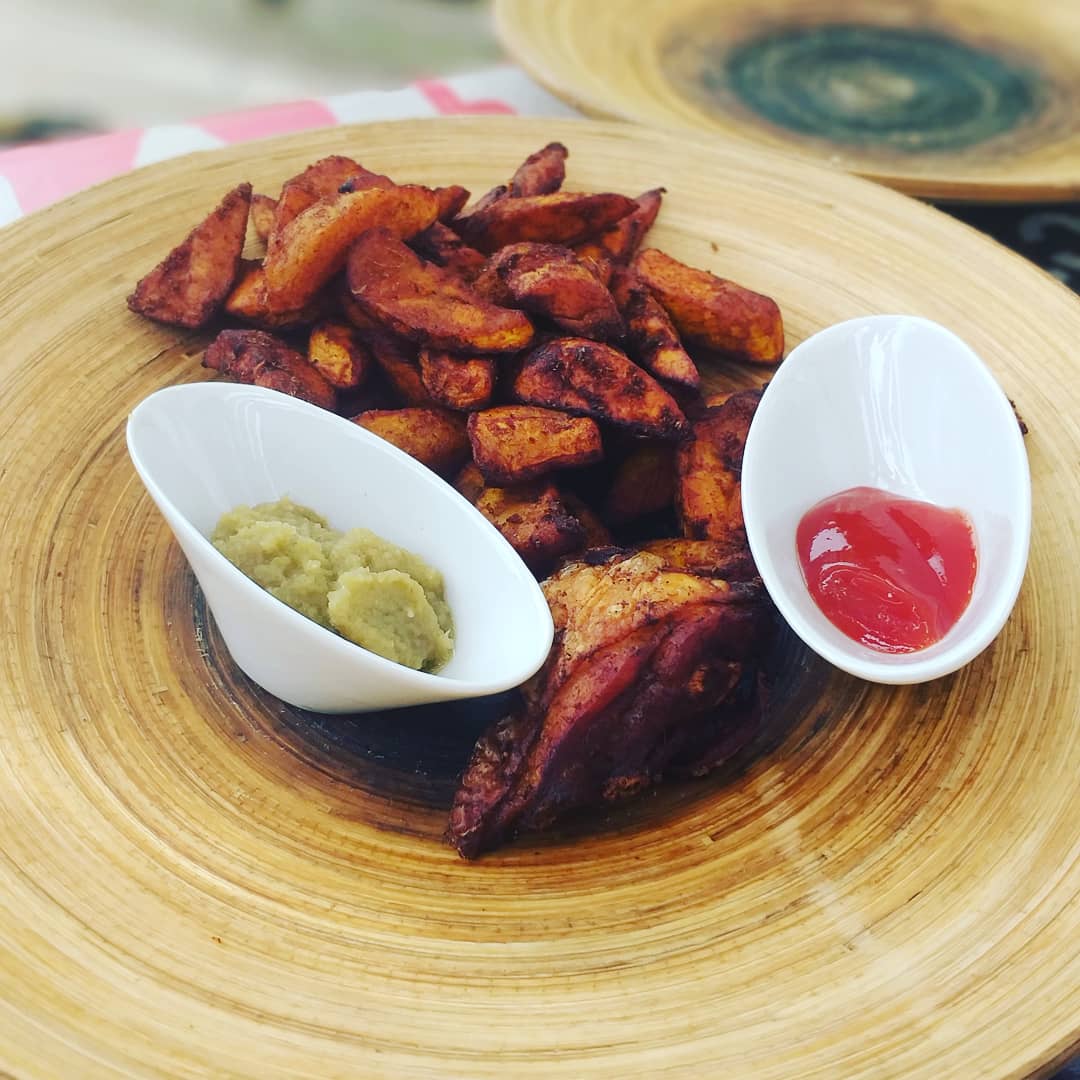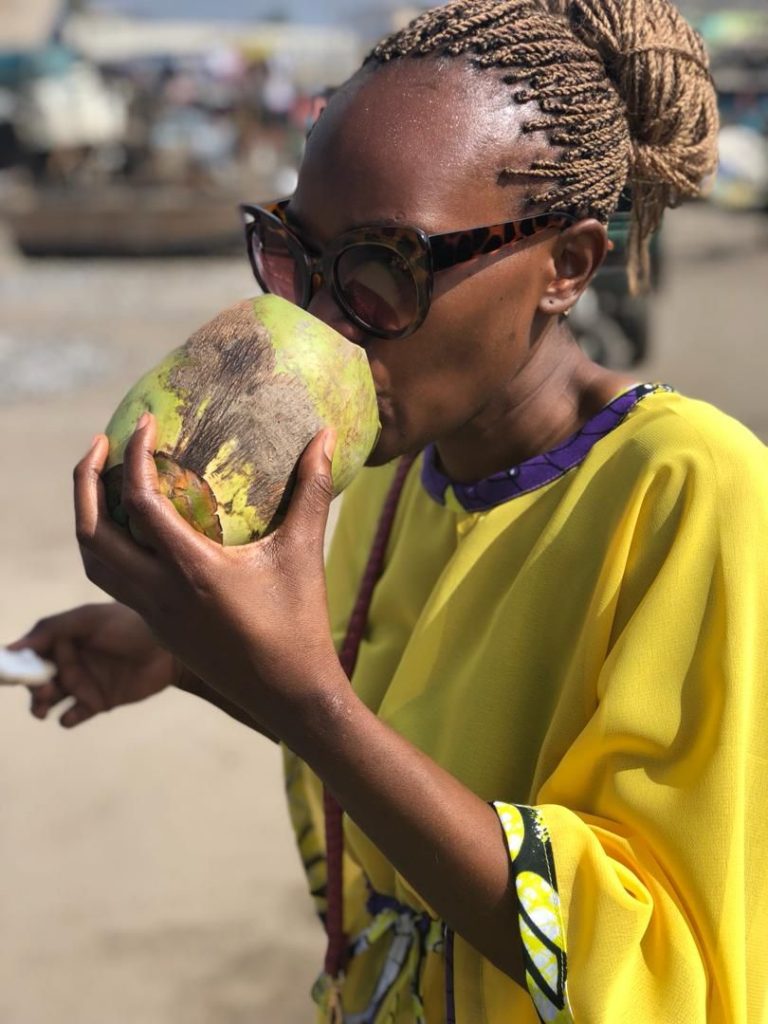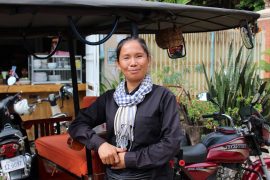I recently visited Accra, Ghana in West Africa. I live in Lusaka, Zambia which is a landlocked country in Southern Africa, so I was excited about my first ever visit to West Africa.
Being a foodie, I was excited to taste different foods and experience the different cultures and I was not disappointed.
Zambia being landlocked, did not really take part in the spice trade with the Arabs and Europeans and most tribes were nomadic in nature as they were running away from various wars around Africa and finally settled in Zambia so our local foods do not have many additional spices. Others would argue that our local food is so full of natural flavours that there is no need to add spices to the food. So, with that in mind, my palate was a bit taken aback by the generous amounts of pepe (chilli) in every meal that I ate. I literally had to have a bottle of water next to me at mealtimes.
First night in Accra, we were hosted by Sierra Leone Chef Binta who specializes in Nubian Fulani cuisine and is known for her ‘dine on a mat’ food experience. What I love most about African cuisine are the stories that go with each dish and how our ancestors came up with the different recipes and decided what is edible and what isn’t. The Fulani tribe in west Africa are nomads so of course, each dish had lots of stories to keep us entertained throughout the dinner. As an African, experiencing a different African culture, it was interesting to see how we are so similar in our cultures but yet so different.
Our first course was Kuti (which is fried cassava balls) with a chilli powder. For our main dish, we had Maffe Tigga (which is lamb cooked in peanut sauce with rice, sweet potatoes, okra and garden eggs). In Zambia, garden eggs are a large part of our local cuisine and referred to as Impwa. We usually serve it mixed with other green leafy vegetables with nshima (which is like fufu, banku or kenke but made from pounded maize meal or cassava) and a protein dish to complete the meal. For dessert, we had millet in sour milk. What amazes me is the fact that most ingredients used in the meal we ate are all readily available in Zambia, but we would never cook up recipes like that in our local cuisine.
Our host, Chef Binta, told us the stories surrounding the food we ate, and how according to Fulani tradition, you can only eat with your right hand. For the main dish, all the food is dished out into one big plate and everyone eats together. You have to eat the food with your right hand while holding the plate with your left hand. As with most African traditions, elders get to eat most of the meat and it is very bad manners to leave unfinished food on the plate. Everything must be eaten. I am glad our host didn’t take offense when we didn’t finish the food, as we were all still shocked with the generous portions of Jollof rice we had been served at lunch at a popular restaurant in Accra.
After such a delicious meal, I will be sure to go out and buy ingredients to share these exciting new west African recipes with my friends back in Lusaka. My favourite food on this trip has definitely been fried plantain – something else that I will introduce to my Zambian friends. After a lot of research on the fried plantain, I discovered that it is a favourite dish in most parts of the world like north and south America, the Caribbean and parts of Europe. Great to know that African cuisine has made its way across the world. In Zambia, our climate is similar to West Africa but the plantain doesn’t grow as big. Let’s see how we could make some Zambian fusion cuisine with West African influences.

I got to try out Ghanaian jollof rice, fufu, okra soup, banku and a local drink that became my favourite – bissa or sobolo (made from hibiscus and ginger). It is really tasty and nutritious and will definitely make its way onto the African Sunsets Restaurant menu.
With all the wonderful west African food I got to try, I was glad I also got to showcase some Zambian cuisine at the indigenous TV show launch. Indigenous is a TV show about African cuisine and the effects of westernization and climate change which begins to air in Ghana. It’s made interesting by the interactions with the different chefs from across Africa and the recipes they share.
On the Zambian food menu, we had:
Vinkubala- (which is our local caterpillars sometimes referred to as Mopani worms in other Southern African countries). This is a Zambian delicacy, and can be eaten as a snack or served with nshima and vegetables.
Chikanda – which tastes and looks like meat and is affectionately referred to as African polony. It is made from the chikanda plant, which is a tuber which is washed and dried and pounded into powder form. It is then cooked together with pounded groundnuts and is on the fire until it is hard. It is left to cool and cut up into pieces to be served as a snack. It is perfect for vegetarians who still want to feel like they are eating meat. I still wonder what on earth our ancestors were doing when they discovered chikanda mixed with groundnuts made a delicious snack!
I also served Lumanda in peanut sauce or visashi as we call it in our local language. Lumanda is actually a weed that grows wild in most parts of Zambia and can be cooked in vegetable oil or peanut sauce. Most of the west African dishes can easily be made in any part of Africa as ingredients are so readily available across the continent. I think we need more of these cultural and food exchanges within different African countries just to showcase how diverse and at the same time similar, we actually are. If we are ever going to get our indigenous food out into the world and recognized as potential five-star cuisine, we need to band together to market our food and culture.
My trip to Accra was fun, delicious and exciting. I met some wonderful people and the ocean air was just what this girl from a landlocked country needed. Learning about the history of the Ghanaians and seeing how entrepreneurial they are even in their packaging and exporting of black soap and shea butter, gave me inspiration on how we all as Africans need to export our local food and culture around the world.
By Abigail Mbuzi
Mastercook Zambia




